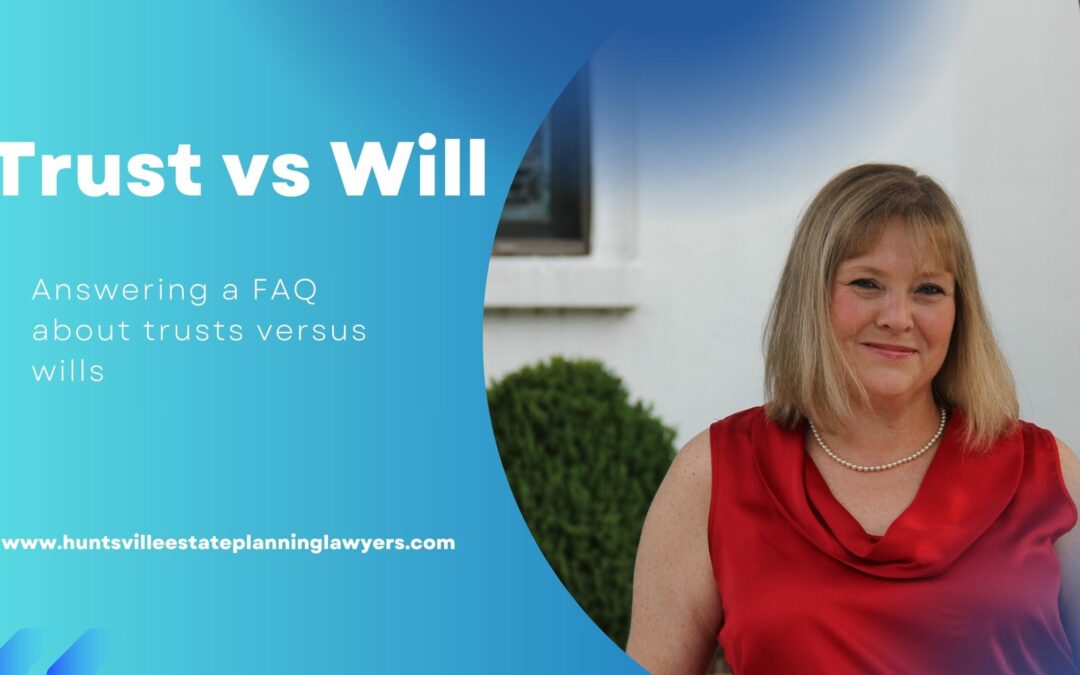Should I get a trust or a last will and testament? That is a frequently asked question, one I get about once per week. Most people are familiar with a last will and testament, but only vaguely familiar with a trust. Admittedly, early in my legal career, I had a lot of questions about trusts and didn’t fully understand how useful a tool a trust could be. Many of us also have preconceived notions about trusts being only for wealthy people, but that is simply not the case. Most everyone can benefit from a trust as part of their estate plan.
A last will and testament is an essential component of an estate plan. A trust does not replace a last will and testament, it complements and supports it. To understand this dynamic between a last will and testament and a trust, this blog will explain the benefits of a trust.
What is a Trust?
A trust serves as a legal mechanism to manage and distribute assets in accordance with your wishes. Whether you seek to provide for your family’s financial security, minimize estate taxes, or support charitable causes, a well-crafted trust can be tailored to address your unique objectives. It goes beyond the simplicity of a will, offering a more comprehensive and flexible approach to estate planning.
Trust Lawyer Huntsville
Creating a trust involves a myriad of legal intricacies that require expert knowledge to navigate. Though many are tempted to take a DIY approach to estate planning, particularly as to a Will, that is definitely not a good idea as to creating a trust (or any estate plan – get it done right with a lawyer). A trust lawyer possesses the expertise to guide you through the process, ensuring that every detail is addressed meticulously. As a trust lawyer, I will ask a lot of questions about your family, the family dynamics, and what your goals are for your asset distribution.
No two individuals have identical circumstances, and the same holds true for their financial and familial situations. As a trust lawyer, I bring a personalized approach to the table, taking the time to understand your specific objectives, family dynamics, and financial portfolio. This tailored approach ensures that I create a legal strategy for your estate plan and to create a trust that aligns seamlessly with your goals and aspirations. As your estate planning lawyer, I will determine the most suitable type of trust for your goals, to draft a comprehensive trust document, and be an indispensable ally in safeguarding your interests.
Trust vs Will: Asset and Wealth Protection
Preserving your wealth and protecting your assets from potential risks is a critical aspect of estate planning. A trust lawyer can structure your trust in a way that shields your assets from creditors, legal disputes, and unforeseen financial challenges. This proactive approach not only secures your legacy but also safeguards the financial well-being of your beneficiaries.
When someone dies with a will, and that estate has to be opened, the assets of the estate can become public knowledge and creditors must be given notice that the estate is opened. It also will require more money to be paid in attorneys fees and probate administration fees, fees that come out of the estate. That means, less money to the beneficiaries.
Trust vs Will: Avoid Estate Taxes
A common reason people tell me they want to prepare an estate plan is to avoid estate taxes. They simply don’t want their family burdened with a hefty tax bill. Estate taxes can significantly erode the value of your estate, leaving less for your loved ones. A trust lawyer possesses the expertise to implement strategies that minimize estate taxes, allowing you to pass on a more substantial legacy to future generations. This forward-thinking approach is a testament to the long-term benefits of seeking professional legal guidance.
You may need to also consult with an accountant as to the tax consequences of certain estate plans. Though a trust can have provisions that help reduce any potential tax burden, a collaboration between an estate planning lawyer and a qualified tax professional may be needed to ensure the best strategy for your unique circumstances.
Trust vs. Will: Administration and Distribution of Assets
This is really where I believe a trust shines! A trust is much more flexible and accommodating than a will. A trust will allow assets to be held easily for a longer period of time, for example, until your children are thirty years old. It can also manage properties and hold them for future generations. A trust can also allow the trustee to withhold assets from a beneficiary who is addicted to drugs or have other problems that make it problematic for him or her to inherit a large sum of money.
The meticulous drafting of a trust document is only the beginning. An experienced trust lawyer provides invaluable assistance in creating the provisions for the administration of the trust, ensuring that the distribution of assets occurs seamlessly, in accordance with your wishes, and that is best for your family.
A last will and testament is less flexible. Though it does direct how assets are distributed, it’s not a mechanism that is good for holding assets for a long period of time, because that would require the probate case to remain open, which can create a nightmare scenario.
Navigating Life Changes
Life is dynamic, and circumstances evolve over time. Whether it’s a change in family structure, financial status, or legislative landscape, a trust lawyer can help you adapt your trust to reflect these changes. Regular reviews and updates ensure that your estate plan remains relevant and effective, providing you with peace of mind.
Trust and Estates Lawyer Huntsville
DIY estate planning may seem tempting, but it often leads to oversights and legal pitfalls that can have far-reaching consequences. A trust lawyer brings a keen understanding of the law and the foresight to anticipate potential challenges. By entrusting the creation of your trust to a legal professional, you mitigate the risk of costly errors that may arise from a lack of expertise.
Do I get a Trust or a Will?
If you need a trust, you also need a will. Creating the trust is not the end of the process, you also must “fund” it. That means, you must place assets in the trust in order for the trust to hold, administer, and distribute those assets. A trust can’t do anything with property that’s not in it! A last will and testament will catch any asset that’s not already in the trust and direct that property to go into the trust. So, it’s not a matter of “or” between a trust and a will. If you a trust is best for your family, you will need both a trust and a will.
Create Your Trust
The creation of an estate plan, to include a trust, is a pivotal step in securing your legacy and ensuring that your intentions are carried out with precision. As a trust lawyer I will serve as your trusted partner in this journey, offering expertise, personalized guidance, and a commitment to protecting what matters most to you. Don’t leave your legacy to chance—empower yourself with a last will and testament and trust, and on the path to a secure and enduring legacy.
Contact Tanya at Huntsville Estate Planning Lawyer, LLC to schedule a consultation to determine if a trust is right for you. Click HERE to schedule now or call 256-361-1221.






